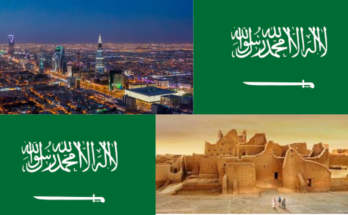Revelation: Arrests of PTI Chairman and Members Made with Speaker of National Assembly’s Approval.
Islamabad – A significant development has emerged in Pakistan’s political arena as it was revealed that the recent arrests of the Pakistan Tehreek-e-Insaf (PTI) Chairman and several other prominent party members were carried out with the explicit permission of the Speaker of the National Assembly. This revelation has caused a political stir, with PTI leaders and legal experts questioning the legitimacy and motivations behind the arrests.
The Arrests.
The PTI Chairman, along with key members of the party, was detained following a series of political protests and rallies. These arrests came amid heightened tensions between the PTI and the ruling coalition, with the former accusing the government of using state institutions to suppress opposition voices. The detentions sparked widespread protests by PTI supporters, who saw the arrests as politically motivated.
Until recently, it was unclear under what authority the arrests were made, leading to speculation about the role of law enforcement and government agencies. However, it has now been revealed that the Speaker of the National Assembly gave formal approval for the arrests, a move that has significant legal and political implications.
Speaker’s Role in the Arrests.
The Speaker of the National Assembly holds a key position in Pakistan’s legislative system, and the revelation that the arrests were carried out with their approval suggests coordination between the legislative and executive branches. Sources indicate that the Speaker was consulted before law enforcement agencies proceeded with the detentions, citing legal provisions that allow such actions under certain conditions.
This revelation has led to accusations that the Speaker, as a member of the ruling party, acted on political motivations rather than legal grounds. PTI leaders have decried the move, arguing that the Speaker’s approval for the arrests represents a violation of democratic norms and an attempt to undermine opposition forces.
Political Backlash.
PTI leaders were quick to respond to the revelation, with senior members accusing the ruling coalition of orchestrating a campaign to silence the party and its leadership. Fawad Chaudhry, a former federal minister and close ally of the PTI Chairman, condemned the arrests and called for an investigation into the Speaker’s role. He argued that the Speaker’s approval for the arrests was an abuse of power and a direct attack on the opposition.
Legal experts have also weighed in on the issue, with some questioning the constitutionality of the Speaker’s actions. They argue that while the Speaker has authority within parliamentary procedures, involving themselves in the arrests of political figures could be seen as overreach and a breach of neutrality.
Opposition’s Response.
Opposition parties have seized upon the revelation, framing it as further evidence of the ruling coalition’s efforts to clamp down on dissent. Bilawal Bhutto Zardari, leader of the Pakistan People’s Party (PPP), called for a parliamentary investigation into the matter. He suggested that the government was using legal and constitutional mechanisms to justify politically motivated actions.
The ruling coalition, on the other hand, defended the Speaker’s decision, arguing that the arrests were carried out in accordance with the law, and that the PTI leaders were involved in actions that warranted such detentions. They maintained that the approval was a legal formality and not an indication of political bias.
Conclusion.
The revelation that the arrests of the PTI Chairman and other members were made with the Speaker of the National Assembly’s permission has intensified the political battle between the PTI and the ruling coalition. As both sides prepare for the next phase of this conflict, the issue is likely to dominate political discourse, with legal and constitutional questions looming over the Speaker’s role in these events. The development marks a critical juncture in Pakistan’s political landscape, where the balance between legality and political maneuvering is increasingly under scrutiny.



